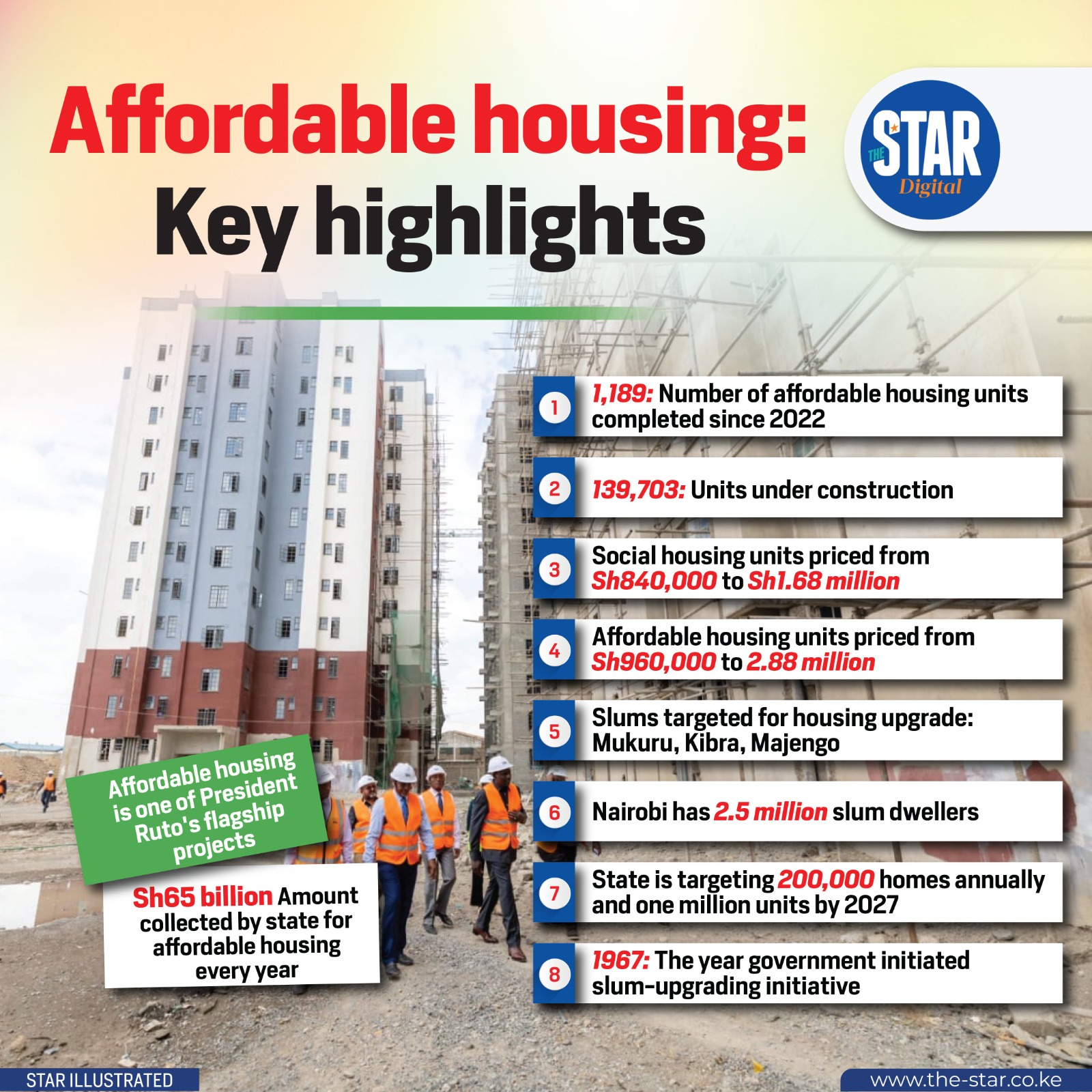Financing real estate purchases in Kenya has evolved significantly over the past decade, with financial institutions developing innovative products to meet diverse investor needs. Whether you're a first-time homebuyer or seasoned property investor, understanding the financing landscape is crucial for making informed decisions and maximizing your investment potential.
Traditional Mortgage Financing
Kenyan banks offer various mortgage products tailored to different customer segments and property types. The mortgage market has become increasingly competitive, resulting in better terms and more flexible options for borrowers.
Conventional Mortgages
Most banks offer standard mortgage products with the following characteristics:
- Loan-to-value ratio: Typically 80-90% of property value
- Interest rates: 12-16% annually, varying by bank and borrower profile
- Repayment period: Up to 25 years for most institutions
- Minimum income: Usually KSh 50,000-100,000 monthly gross income
- Down payment: 10-20% of property value required upfront
Islamic Banking Solutions
Sharia-compliant financing options available through Islamic banks:
- Murabaha financing: Cost-plus profit arrangement with predetermined returns
- Ijarah financing: Lease-to-own structures for property acquisition
- Diminishing Musharakah: Partnership arrangements with gradual ownership transfer
- Competitive rates: Often comparable to conventional mortgage rates
Government-Backed Financing Programs
Kenya Mortgage Refinance Company (KMRC)
The KMRC provides wholesale funding to primary mortgage lenders, enabling them to offer more affordable mortgage products:
- Reduced rates: Enables banks to offer lower interest rates to borrowers
- Longer tenures: Extended repayment periods up to 25 years
- Broader access: Increased availability of mortgage credit
- Standard products: Harmonized mortgage products across participating banks
National Housing Development Fund (NHDUF)
Government initiative supporting affordable housing through:
- Subsidized rates: Below-market interest rates for eligible borrowers
- Income targeting: Focus on middle and lower-income households
- Flexible terms: Accommodating repayment structures
- New developments: Financing for government housing projects
Alternative Financing Options
Savings and Credit Cooperatives (SACCOs)
SACCOs provide member-focused financing with unique advantages:
- Lower rates: Often 2-4% below commercial bank rates
- Flexible requirements: Less stringent qualification criteria
- Member benefits: Dividend payments and other member perks
- Local focus: Understanding of local market conditions
- Group guarantee: Collective responsibility reducing individual risk
Microfinance Institutions
MFIs serve customers traditionally excluded from banking:
- Small loans: Property financing from KSh 500,000 to KSh 5 million
- Informal income: Accept customers with irregular income documentation
- Quick processing: Faster approval and disbursement timelines
- Higher rates: Interest rates typically 16-24% annually
Developer Financing
Property developers increasingly offer direct financing:
- Payment plans: Structured payment schedules during construction
- Rent-to-own: Gradual ownership transfer through rental payments
- Vendor financing: Developer acts as lender for property purchase
- Flexible terms: Customized arrangements based on buyer circumstances
Investment Property Financing
Commercial Property Loans
Banks offer specialized products for income-generating properties:
- Higher LTV ratios: Up to 70% for commercial properties
- Income consideration: Rental income factored into affordability assessment
- Shorter terms: Typically 10-15 years for commercial properties
- Security requirements: Additional collateral often required
Buy-to-Let Mortgages
Specific products for rental property investment:
- Rental income qualification: 70-80% of expected rental income considered
- Higher deposit requirements: 25-30% down payment typically required
- Portfolio lending: Financing multiple properties under single facility
- Professional landlord programs: Enhanced terms for experienced investors
Financing Process and Requirements
Documentation Requirements
Standard documents required for mortgage applications:
- Income verification: Payslips, employment letters, tax returns
- Bank statements: 6-12 months of banking history
- Credit reports: CRB reports from licensed credit bureaus
- Property documents: Title deeds, valuation reports, building approvals
- Identification: National ID, passport, and passport photos
Approval Process Timeline
Typical mortgage approval process stages:
- Application submission: Complete application with required documents
- Credit assessment: Income verification and credit history review (5-10 days)
- Property valuation: Professional property appraisal (3-7 days)
- Legal verification: Title deed and property legal checks (7-14 days)
- Final approval: Loan committee review and approval (3-5 days)
- Disbursement: Funds transfer to vendor or developer (1-3 days)
Interest Rate Structures
Fixed vs. Variable Rates
Understanding interest rate options:
- Fixed rates: Consistent payments, protection against rate increases
- Variable rates: Lower initial rates, potential for rate reductions
- Hybrid products: Fixed rates for initial period, then variable
- Rate caps: Maximum rate limits providing borrower protection
Factors Affecting Interest Rates
Variables influencing your mortgage rate:
- Credit score: Higher scores qualify for better rates
- Income stability: Employment history and income consistency
- Down payment size: Larger deposits may reduce rates
- Property type: Residential vs. commercial property rates
- Loan amount: Larger loans may qualify for preferential pricing
Costs and Fees
Upfront Costs
Initial expenses in mortgage financing:
- Application fees: KSh 5,000-20,000 depending on lender
- Valuation fees: KSh 15,000-50,000 based on property value
- Legal fees: 1-2% of property value for conveyancing
- Insurance premiums: Mortgage protection and property insurance
- Stamp duty: 4% of property value payable to government
Ongoing Costs
Regular expenses throughout loan term:
- Monthly repayments: Principal and interest payments
- Insurance renewals: Annual property and life insurance
- Service charges: Property management and maintenance fees
- Property taxes: Annual land rates and property taxes
Improving Mortgage Eligibility
Credit Score Enhancement
Steps to improve creditworthiness:
- Pay bills on time: Consistent payment history improves credit score
- Reduce existing debt: Lower debt-to-income ratios improve eligibility
- Maintain bank accounts: Stable banking relationships demonstrate reliability
- Avoid new credit: Limit new credit applications before mortgage application
Income Documentation
Strengthening income verification:
- Employment stability: Maintain consistent employment history
- Additional income: Document rental income, investments, side businesses
- Tax compliance: Ensure up-to-date tax returns and compliance
- Co-borrowers: Include spouse or partner to strengthen application
Refinancing Opportunities
When to Consider Refinancing
Situations favoring mortgage refinancing:
- Interest rate decreases: Market rates significantly below current rate
- Improved credit profile: Better terms available due to improved creditworthiness
- Property value appreciation: Increased equity enabling better loan terms
- Change in financial circumstances: Higher income or different financing needs
Refinancing Process
Steps in mortgage refinancing:
- Market research: Compare current market offerings
- Cost-benefit analysis: Calculate refinancing costs vs. savings
- New application: Apply for refinancing with chosen lender
- Property revaluation: Updated property appraisal for new loan
- Settlement: Pay off existing loan with new financing
Future Trends in Real Estate Financing
Digital Lending Platforms
Technology transforming mortgage lending:
- Online applications: Digital-first application processes
- Alternative data: Mobile money and digital payment history
- Faster processing: Automated underwriting and approval systems
- Lower costs: Reduced operational costs benefiting borrowers
Green Building Financing
Emerging focus on sustainable property financing:
- Green mortgages: Preferential rates for energy-efficient properties
- Sustainability incentives: Rewards for environmentally friendly features
- Climate resilience: Financing for climate-adapted construction
- Certification requirements: Green building standards influencing lending
Conclusion
Real estate financing in Kenya offers diverse options catering to different investor profiles and property types. Success requires understanding the various products available, preparing thoroughly for the application process, and choosing financing that aligns with your investment strategy and risk tolerance.
The market continues evolving with improved access, competitive rates, and innovative products. Whether you're buying your first home or expanding a property portfolio, take time to research options, compare terms, and work with experienced professionals to secure the best financing for your real estate goals.




